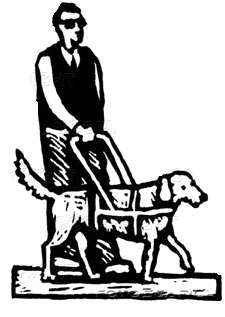 We're the parents of a blind child, our family's life is shared with a very affectionate dog, and we used to live in Melbourne. All good reasons why it's only right that we respond to this news article:
We're the parents of a blind child, our family's life is shared with a very affectionate dog, and we used to live in Melbourne. All good reasons why it's only right that we respond to this news article:Muslim cabbies refusing the blind and drinkers
By Lincoln Wright and Ian HaberfieldSince we no longer live in Australia, it's not appropriate for us to tell anyone there how to conduct their lives. But this seemingly-small issue of how to relate to service-providers whose religion, they say, requires them to discriminate against people in ways that clearly offend the local laws, is a reflection of a much larger issue being played out all over the world. Islamic values, which are subject to a broad range of interpretation, frequently conflict with the values of the societies to which Moslems have migrated in search of a better life.
October 08, 2006 12:00am
MUSLIM taxi drivers are refusing to carry blind passengers with their guide dogs or anyone carrying alcohol. At least 20 dog-aided blind people have lodged discrimination complaints with the Victorian Taxi Directorate. Dozens more have voiced their anger. And there have been several complaints that drivers refuse to allow passengers to carry sealed bottles of alcohol. Victorian Taxi Association spokesman Neil Sach said the association had appealed to the mufti of Melbourne to give religious approval for Muslim cabbies to carry guide dogs.
One Muslim driver, Imran, said yesterday the guide dog issue was difficult for him. "I don't refuse to take people, but it's hard for me because my religion tells me I should not go near dogs," he said.
There are about 2000 Muslims among drivers of Melbourne's 10,000 taxis. Many are from countries with strict Islamic teachings about "unclean" dogs and the evils of alcohol. Drivers who refused to carry blind people with their dogs attended remedial classes at Guide Dogs Victoria, Mr Sach said. "They are taught why blind people need dogs," Mr Sach said. "The Victorian Taxi Association has included a program in their taxi driver training program."
Guide Dogs Victoria spokeswoman Holly Marquette said blind people regularly reported taxi drivers refusing to carry them because of their dogs. "It's sad and quite upsetting," Ms Marquette said. "We try to work with new drivers to educate them about their responsibilities and the needs and rights of blind people. We explain that the dog is clean, well trained, won't go near them and will stay in the foot well with the client. But it's a high turnover industry and it's hard to capture everyone." Ms Marquette said there was a legal requirement for taxi drivers, shops, restaurants, hotels and supermarkets to accept guide dogs.
Under the State Government's customer charter, taxi passengers have the right to "be accompanied by a guide dog or hearing dog".
Mr Sach said the problem was often reversed and that Muslim drivers suffered discrimination from passengers who abused them for being "terrorists". "Muslims are good people and the community has to realise that the days of the white Anglo-Saxon Protestant are well and truly over," he said. Over the past two years the licences of 306 drivers were revoked or suspended, including those who refused to carry the blind and their dogs.
The self-respect of western societies and their real, actual, practical commitment (as opposed to the empty words and chest-beating of many politicians) to their own mores and values are at the heart of this debate. The implications for Europe, in particular, of not handling this appropriately are tremendous.
A comment on words of the taxi industry leader quoted above: "Muslims are good people and the community has to realise that the days of the white Anglo-Saxon Protestant are well and truly over." Moslems are not good people, any more than Jews or Christians are good people. Their conduct determines whether they're good. As the tensions that characterize multi-cultural societies everywhere grow sharper, people have to be judged by their actions. Not by the shape of their noses, the colour of their head-gear or the direction in which they pray but by their actions.
If their actions serve to make more difficult the lives of blind people or any other group needing some consideration in society, those are bad actions, and society's sanctions need to be applied. This is not racist or prejudicial, but simply a necessary part of living at peace with people whose views different from those of the mainstream. How well we handle the small and large challenges will determine whether or not we're headed for a dark age of intolerance.

No comments:
Post a Comment